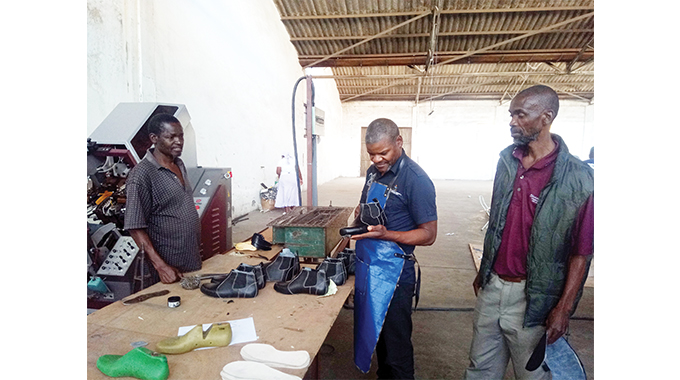Call for Gweru permanent High Court

Patrick Chitumba, Midlands Bureau Chief
BULAWAYO High Court judge Justice Evangelista Kabasa has called for the establishment of a permanent High Court in Gweru to ensure easy access to justice.
In her speech during the opening of the 2022 Legal Year at the Gweru Magistrates’ Court yesterday, Justice Kabasa, who will be in Gweru for two weeks during the High Court circuit, said the absence of such a court in the Midlands capital makes access to justice expensive.
“Let me therefore add my voice to the clarion call for the establishment of a permanent High Court in the Midlands capital. We cannot talk of a Zimbabwe in which world class justice prevails as our vision and with core values that speak to, among other things, accessibility of court facilities when we still have hordes of litigants travelling to either Harare or Bulawayo in order to access justice.
It is also important to note that no civil cases are heard when the High Court sits on circuit, so litigants in civil matters have to travel to Bulawayo for the resolution of their civil matters. Not only is this time consuming, but it also makes accessing justice an expensive exercise,” she said.
Justice Kabasa said a permanent High Court in Gweru would ensure access to justice is a reality for the Midlands population, which will in itself translate to a reduction if not eradication altogether of the backlog in criminal cases.
The judge said the current cases ready for trial in the Midlands province are 105, adding that cases under investigation or in the set down office stand at 50
“The Gweru Circuit court sits three times per year where an average 39 cases are set down for hearing. This translates to a mere six weeks of court sitting in a year. The decentralisation of the High Court has seen the High Court now having a permanent seat in Mutare, Masvingo and recently Chinhoyi.
The first High Court sitting at Chinhoyi is with effect from the first term of this 2022 legal year. This development is to be commended as this will definitely result in the clearing of the backlog for these Provinces. We salute the Judicial Service Commission on this achievement,” she said.
Justice Kabasa said the circuit has a total of 12 cases that have been set down for trial.
She said the circumstances of these murder cases mostly speak to the lack of self-control in the face of conflict and the impairment of sound judgment due to beer consumption.
“If beer drinking ceases to be a merry-making pastime but instead creates fertile ground for conflict and escalation of violence, it is probably time that society weighs the pros and cons of public gatherings where beer is imbibed with reckless abandon,” she said.
Justice Kabasa said the Covid-19 pandemic containment measures which necessitated a lockdown at the beginning of 2021 meant that there was no Gweru Circuit which had been pencilled for the period January 25 to February 5 last year.
This, she said, meant that the 13 criminal trials which had been set down did not kick off.
“The net effect of this unfortunate occurrence meant that 13 cases which could have been finalised were added back to the backlog of criminal cases. These 13 criminal trials were subsequently rolled over to the next circuit which started on 17th May and ended on 28th May 2021. Of the 13 cases, 11 were completed and two were removed from the roll due to the non-availability of accused persons. Of the 13 cases, four were perpetrated by suspected mental patients who were ordered to be examined by a psychiatrist,” said Justice Kabasa.
She said the two Gweru Circuits saw the completion of a total of 21 cases out of a total of 28 cases.
The judge said some murder cases were committed by mental patients and these require care and proper management.
“These statistics reveal the following, the unfortunate loss of life at the hands of mentally challenged individuals, the ugly occurrences of violence which leads to the unnecessary loss of life, the impediment to commencement of trial occasioned by the non-availability of accused persons,” said Justice Kabasa.
Justice Kabasa said there is a tendency to stigmatise those with mental challenges which invariably leads to their neglect leading to these violent crimes which could be mitigated if society learns to accept that mental illness is an illness like any other and those affected must be afforded proper care and management in order to protect not only those so affected but family members who are invariably the victims in these murder cases.
Statistics show that of the total 28 cases only nine involved mentally challenged individuals.
Justice Kabasa said the bulk were therefore, perpetrated by people of sound mind.
“It is very sad that people fail to exercise self-control and resort to violence, unnecessarily leading to loss of life. As a society we must learn to respect the sanctity of life and refrain from violent tendencies.
Violence never solves anything whereas dialogue is a panacea which should be embraced by all peace-loving people and each one of us ought to value peace and peaceful resolution of conflicts of whatever nature,” she said.
Justice Kabasa said with regards to trials which failed to take off due to the non-availability of the accused persons, there is a tendency at times to quickly jump to the conclusion that had bail been denied to these people their trials would have commenced and been finalised.
“Bail is a right, to be denied only where the interests of the proper administration of justice, the protection of the efficacy of the bail system and the protection of the public demands that it be denied.
The presumption of innocence which operates pre-conviction makes it odious to routinely deny accused persons bail primarily on the basis that they are facing serious offences. Our law dictates that bail should be denied where there are compelling reasons to do so,” she said.
The theme for the legal year is, “Use of technology to enhance efficiency and the rule of law in the Judiciary.”
Technology, Justice Kabasa said would entail, among other things, virtual sittings which would mean no court interruptions as happened with the onset of the Covid-19 pandemic.
“Embracing technology is therefore the way to go. This however, is not an end in itself as the co-operation of all stakeholders in the justice delivery system is of paramount importance.
The court’s work would be greatly hampered without the maximum co-operation of the National Prosecuting Authority, the Zimbabwe Republic Police, The Zimbabwe Prisons and Correctional Services and Legal Practitioners. I must therefore express my gratitude and appreciation to the sterling work being done by all these stakeholders,” she said.











Comments